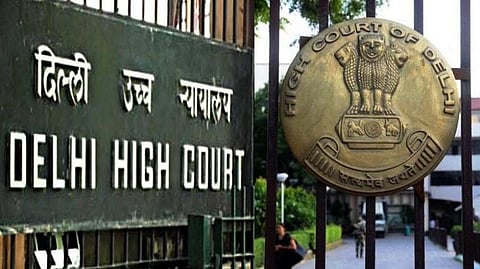

A recent controversy surrounding the National Eligibility-cum-Entrance Test - Postgraduate (NEET-PG) counselling process has raised serious concerns about the rights and opportunities of Persons with Disabilities (PwD) in India.
The Medical Counselling Committee (MCC) has been criticised for its decision to convert unfilled PwD-reserved seats into general category seats during the third round of NEET-PG counselling, prompting a group of PwD candidates to file a plea in the Delhi High Court.
The petition argues that such a conversion undermines the provisions of the Rights of Persons with Disabilities (RPWD) Act, 2016, and dilutes the reservation rights of PwD candidates in higher education.
The high court has directed the MCC and the Union of India to respond to the plea, with the next hearing scheduled before the vacation bench on December 30, 2024.
As the legal battle unfolds, disability rights activists and medical professionals with disabilities are voicing their concerns about this contentious issue.
Dr Satendra Singh, Director Professor of Physiology at the University College of Medical Sciences (UCMS) and a renowned disability rights activist, condemned the MCC’s decision.
"The RPWD Act, which is passed by the Parliament of India, has granted 5% reservation in higher education for persons with disabilities. This is their mandate. This is the law of the land," he emphasised.
He highlighted that even the limited representation of PwD candidates in medical postgraduate programmes is often achieved after prolonged legal battles due to discriminatory medical guidelines.
"When you are converting the seats into the general category, it is actually diluting the affirmative actions which are enshrined in the RPWD Act," he added, questioning why only PwD candidates are targeted for such conversions, while other reserved categories, like Scheduled Castes (SC), Scheduled Tribes (ST), and Economically Weaker Sections (EWS), remain unaffected.
Dr Singh attributed the decision to the relative lack of representation among PwD candidates compared to other reserved groups, saying, “They think this is a very marginalised section... and that we will not go to court, or fight for our rights".
For Dr Nonita Gangwani, Assistant Professor at UCMS with multiple sclerosis, the implications of this decision go beyond the immediate issue of seat allocation. She pointed out the systemic hurdles faced by PwD candidates even after securing a seat.
"Even after having a Unique Disability Identity (UDID) card, every year you have to get a medical fitness [certificate] to qualify for counselling. The MCC’s decision could mean that PwD candidates have to go through that trauma again next year," she said, explaining that the process of obtaining these certificates is far more challenging for PwD candidates than for general candidates.
She criticised the additional challenges posed by the limited number of approved centres for obtaining these certificates, describing the process as "creating an attitudinal barrier."
Dr Gangwani further highlighted that converting PwD seats to the general category denies deserving candidates their "golden chance" to secure a seat, especially if percentile criteria are relaxed in later rounds.
Both Dr Singh and Dr Gangwani emphasised the detrimental impact of the MCC’s policy on the accessibility and inclusivity of medical education in India. Dr Singh noted that even if seats are restored in future counselling rounds, the damage has already been done.
"Why should people have to go as high as the high court or the Supreme Court for their rights?" he questioned, urging the MCC and the Union Government to reconsider their stance and provide equal opportunities for all.
Dr Gangwani underlined the broader implications of this controversy. "In the future, PwD candidates might be sceptical and unsure whether they will get a seat or not... Even if they qualify and get good merit, that query will always remain in their mind," she said.
She stressed the importance of preserving the 5% horizontal reservation for PwD candidates until the final round of counselling, arguing that failing to do so removes the equity factor essential for creating an inclusive education system.
The petitioners in the high court have urged the judiciary to issue an order preventing the conversion of PwD seats into general seats and ensuring their preservation until the final counselling round. Dr Singh advocated for immediate reversal of the MCC’s policy and for sensitisation of MCC staff about legal guidelines to prevent such issues in the future.
Advocacy remains critical, according to Dr Gangwani. "Only if we raise our voice will these issues come up, will solutions emerge. By keeping our experiences to ourselves, we will not be able to help future generations," she said, highlighting the importance of collective action in safeguarding the rights of PwD candidates.
As the high court deliberates on the matter, the outcome will serve as a litmus test for the inclusivity of India’s medical education system and its commitment to protecting the rights of marginalised communities.
